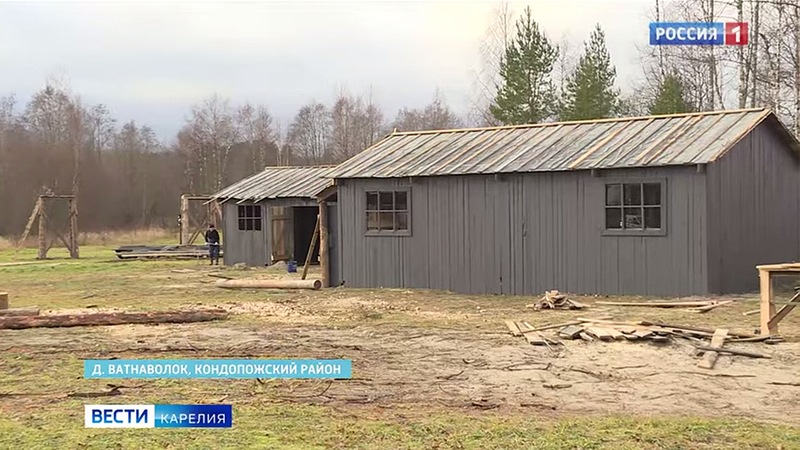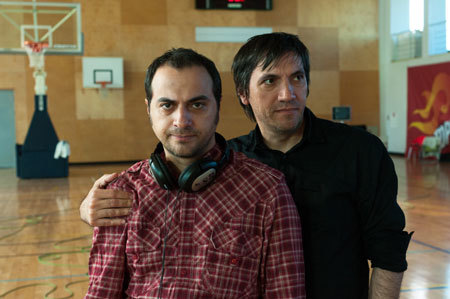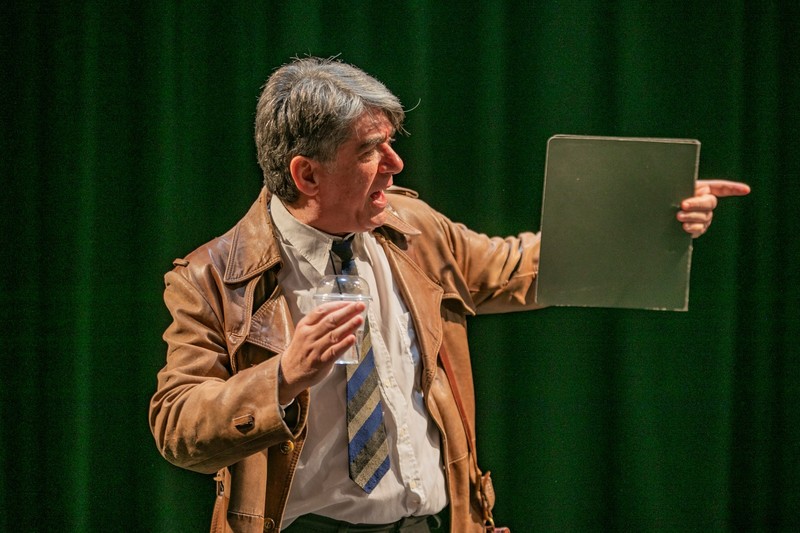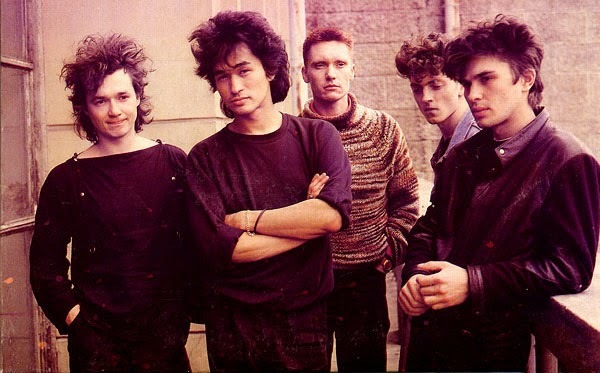RUSS 005 - Omeka Project - Jimin Lee
Introduction
Ever since the fall of the Soviet Union and especially upon the election of president Vladimir Putin, the Russian state has forged history and promoted Russian Orthodox Christianity to maintain social order and validate Putin’s rule in Russia. These traditional approaches aimed to unite citizens amid the turmoil of a post-Soviet era, while instigating discrimination against non-traditional groups like racial, ethnic, and sexual minorities who have been perceived as a threat to attaining a homogenous Russian Federation. In response to social injustice, Russian citizens have simultaneously been waging direct and indirect campaigns, advocating for the rights of the oppressed, demanding answers from the Putin administration, and striving for social advancement. This exhibit delves into how the Putin administration’s interpretation of history and religion shapes the ideological clashes between pro-Putin and anti-Putin parties in society, and how these conflicts are reflected in literature.
Traditionalism and the Putin Administration:
Historical Modification
The Putin administration takes control over Russia by altering Russian history and incorporating the teachings of Russian Orthodox Christianity into politics, which both shape Russia into a society that values history and traditions.
First, the Putin administration maintains social order and reinforces its power by promoting national unity and patriotism through a political strategy known as historical modification, which takes place in three different forms: (1) deliberate omission, (2) neglect, and (3) embellishment. (1) Russian politicians purposefully omit the perspectives of racial and/or ethnic minorities from historical records, which results in a redefinition of group identities in Russia, excluding these minorities (Torbakov 151). The state’s deliberate failure to acknowledge minorities becomes the source of societal alienation and hostile attitudes toward these underrepresented populations in Russia (Torbakov 151-152). (2) The state disregards aspects of history that reflect badly on the current administration and instead highlights historical events that instill national pride in people (Torbakov 149-150). The selective representation of history manifests the state’s desire to foster unity, gain public support, and bolster its authority (Torbakov 152). (3) Russian politicians overvalue historical events that help emphasize the supremacy of Russia. For example, by overstating the fact that the state and the Russian Orthodox church followed the same path of development and share a common origin, politicians attributed spirituality to Russian history, portraying Russia as a holy land (Torbakov 151). These tactics have served as a justification for the state to insulate “spiritual Russia” from the influences of other secular Western countries and claim its sovereignty in post-Soviet era (Torbakov 151; Knox 139).
The latest example of historical modification is President Vladimir Putin’s reconstruction of a replica World War II (WWII) prison camp in the Republic of Karelia in northwest Russia. This mock concentration camp is a reproduction of the Karelian concentration camp, which operated in the 1940s during WWII and where approximately 4,000 Soviet civilians perished. Despite the high death toll and gravity of war crimes, the Putin administration persists in opening this site for children’s school field trips.
Why expose children to these atrocities? Experts claim this is a typical "Putin-style" military-patriotic education. By misrepresenting tragic wartime memories in a light and proud manner, the regime encourages children to view Soviet military history with a positive outlook. It is indeed ironic how rather than commemorating the loss of its citizens, the state is more interested in altering the depiction prison camps to pass on national pride to its future generations and maintain its power in the long run. Historical modification is thus problematic as it promotes an inhumane approach to wartime memories, while deluding innocent citizenry who are exploited for political interests.
Russian Orthodoxy
Second, the Putin administration utilizes the teachings of Russian Orthodox Christianity as a political justification to discriminate against the LGBTQ population in Russia through legal means (“Russia’s anti-gay”). According to the Russian Orthodox Church, members of the LGBTQ are “sinners” who defy mankind’s rightful duty to reproduce, as commanded by God (Mawerenga 355). The Orthodox Church’s disapproval of LGBTQ is deeply infused into Russian politics, as the Putin administration manifested this belief through legal actions: the enactment of the gay propaganda law that targets Russian LGBTQ communities (Verpoest 3-4; "Russia's anti-gay") and the in-vitro fertilization restrictions against gay parenthood.
First and foremost, what is the Gay Propaganda Law?
According to Amnesty International, the gay propaganda law is a policy enacted in 2013 to protect Russian children from adhering to unorthodoxy values by banning the promotion of LGBTQ “propaganda." The ulterior motive behind this religion-based law, however, was the state’s desire to control the spread of non-traditional values that are obstacles to their conservative rule (Torbakov 169). Since its establishment, the gay propaganda law has served as a justification for anti-LGBTQ actions in Russia.
As detailed in the article “St. Petersburg Authorities Disrupt LGBT Film Fest Opening," LGBTQ members in Russia live in fear of attacks and assaults from police officers and anti-LGBTQ protestors who barge into pride events to commit hate crimes or fine LGBTQ artists for producing unorthodoxy “propaganda." The gay propaganda law is extremely controversial, as it forbids LGBTQ from embracing and celebrating their identities without having to violate the law.
Despite being discriminatory in nature, the gay propaganda law is still dogmatized in Russia due to its Orthodox grounds that provide an incontrovertible justification for its enactment. Hence, the establishment of religion-based laws that target minorities seem even more menacing in a society like Russia that emphasizes on the centrality of religion. It is thus harder to abolish the gay propaganda law in Russia.
President Putin's justification for the enactment of the gay propaganda law in 2013.
Next, what is the in-vitro fertilization (IVF) restriction?
IVF is a medical procedure where an egg is fertilized by a sperm in test tubes or through surrogate women. Despite having been legalized in Russia, IVF is only accessible to married couples and single women. Therefore, single gay Russian men who recently became adoptive parents through IVF were falsely accused and charged with child trafficking. The main reason behind the denial of gay men’s access to IVF is the fear of gay parenthood being a direct challenge against traditional family values imposed by the Russian Orthodox Church and adopted into politics by the Putin administration. Hence, the double standards in accessing IVF and the allegations toward gay men evince the deep rooted homophobic attitudes in the Russian society, as well as how Orthodoxy lies at the core of policymaking in Russia. Although it is apparent that these IVF restrictions are one-sided, just like the gay propaganda law, this too is irrefutable in Russia as it is based upon the holy doctrine of the Russian Orthodox Church.
Under the justification of preserving traditional Orthodox values and creating an ideologically united Russia, the Putin administration continues to validate their discriminatory policies and foster anti-LGBTQ attitudes in society. Even though LGBTQ discrimination is not an ethical problem exlusive to one country, its consequences seem more drastic in Russia due to Russia’s peculiar situation with the state explicitly engendering these prejudices and the military compliciting in crimes against minorities. Such lack of support systems in Russia amplify the hardship LGBTQ communities face, and these systemic inequities remain unaddressed, thus unresolved.
Historical modification and the endorsement of Orthodoxy resulted in negative consequences, such as misplaced morality, deception of the public eye, and alienation of non-traditional groups. Putin’s leadership was thus brought to question as these political strategies appeared more power-oriented and less people-oriented. As a result, Putin administration’s efforts to maintain social order and emphasize on its sovereignty backfired on them by evoking greater public backlashes: citizen-led movements against Putin’s traditional rule, namely the anti-Putin forces.
A Call for Change:
When and How Does Anti-Putinism Occur in Russia?
Different citizen-led movements have emerged in response to the continuation of social injustices committed by the Putin administration. These parties are at the forefront of change, leading protests and activist movements to criticize, address, and uproot the ideas and policies imposed under Putin’s leadership.
On October 7, 2020, in the spirit of Putin’s 68th birthday, the leading feminist group Pussy Riot hung LGBTQ rainbow flags on government buildings in Moscow. When the Putin administration arrested the activists behind the pride flag movement, their immediate action evoked outrage from the public who deemed hanging flags as a peaceful gesture. On top of stirring up negative emotions toward Putin’s leadership, the activists insulted Putin by “celebrating” his birthday with pride flags and thus raising awareness of the LGBTQ community that he normally disregards. By successfully championing their identities on Putin’s special day, the activists seem to be mocking Putin and his anti-LGBTQ policies for being fruitless, while sharing their persistence and determination to gain equal rights and public recognition. Had the pride flag movement taken place on another day, chances are it could have been less effective. Hence, this peaceful protest exemplifies the significance of the day on which political demonstrations take place, as these settings can be the key factor in truly conveying the message behind these events.
On a similar note, the article “Dozens of Russian Nationalists Stage Anti-Putin March in Siberia” elaborates on a group of nationalists who held a political demonstration on another one of Putin’s special days: the National Unity Day (November 4, 2020). The National Unity Day is a public holiday created by president Putin to celebrate Soviet’s war victory over Polish forces in 1612 and thus promote patriotism. However, considering how the anti-Putin march took place on a patriotic day established by Putin himself, it is almost as if the protestors are taunting Putin’s ineffectual efforts to champion the past. Furthermore, it is also quite ironic how Putin long desired for national unity that can reinforce his rule, yet, upon reaching unity, Russians demanded for his impeachment instead. It was indeed unity but of a different kind.
The unexpected irony that rises from hosting anti-Putin movements on Putin’s special days not only allowed protestors to better voice themselves but also condemn Putin’s political affairs for being unjust and pointless. Meanwhile, though neither demonstrations resulted in any direct institutional changes, the message is clear: Putin is unwanted by these groups and likeminded individuals from various camps.
Russian Culture:
A Reflection of Contemporary Russian Society
Playing the Victim
The friction between traditional and non-traditional ideals is a theme most evident in Playing the Victim by the Presnyakov Brothers. In the play, the Voice, or the narrator, describes how his parents struggle to comprehend his decisions, especially his use of chopsticks.
The father complains, "Why can't you eat like everyone else? Where did you find those chopsticks? Why are you eating with them?" (Presnyakov 85), and the Voice responds, "Half the world uses [chopsticks]. And you can eat anything you like with them" (Presnyakov 85).
In the conversation between the father and the son, the readers can easily spot the attitudinal differences. The father is more defensive toward using chopsticks, whereas the son, or the Voice, is more open to adopting it into his life. Since chopsticks are eating utensils imported from a foreign nation, the father’s negative reaction to chopsticks resonates with the traditional state’s disapproval of foreign cultures. Especially when the father attempts to restrict the son from endorsing chopsticks, the scene reminds readers of the Putin administration’s efforts to sever Russia’s ties with the West by describing history through modified lenses. The Russian state’s segregation policy serves as one of the many justifications for why older generations, like the father himself, are more reluctant toward embracing non-traditional cultures: they were indoctrinated to value homogeneity and tradition under a conservative administration.
Following this conversation, the inspector of the crime reconstruction rants about how disappointing new generations are:
"You went to the same schools, had the same teachers, your parents are almost the same fucking age as me, so how come you turned out like this" (Presnyakov 94).
The inspector criticizes the indifferent behaviors and weak mindsets of new generations that he considers to be drastically different from his contemporaries. Along with the father's reluctance to accept foreign cultures, the inspector’s disapproval of new generations details traditional views that clash with non-traditional outlooks. In both cases, the father and the inspector desire to retain what is considered traditional, thus purely Russian. As a result, they conflict with figures who choose to embrace foreign cultures or exhibit attitudes deemed non-traditional. These conflicts reflect the real-life friction between traditional and non-traditional parties in contemporary Russian society.
Shortly after, the father lectures the Voice,
"Son, in Russia, if you want to live you need [a spoon]! (He stands the spoon up.) This is what you eat with... Look, right-we Russians put a ladle on the end of the stick... Let them keep their sticks to themselves in the East!" (Presnyakov 86).
The father constantly employs phrases like "in Russia" and "we Russians" in juxtaposition to words and phrases like "them", "themselves" and "in the East” that refer to foreigners who use chopsticks on a daily basis. The father’s separation between “us” Russians and “them," the foreigners, is rooted from the patriotic sentiments promoted by the Putin administration to suppress non-traditional values and rather emphasize on the uniqueness of Russian history and Orthodoxy. Moreover, when the father criticizes his son’s use of chopsticks, he is casting off different perspectives and subduing his son’s “rebellious” thoughts. This condescending attitude resembles the Putin administration’s pursuit of national unity and power, even if it entails enclosing Russia and neglecting non-traditional groups. The father’s heartless words thus mirror indifferent policies.
Though the Voice is portrayed as an open-minded character who values non-traditional ideas, deep down this does not appear to be the case:
“Actually I use chopsticks so I don’t have to do the washing up… Chopsticks are really annoying to eat with - even when you get good at it… I also find chopsticks really revolting. In fact, anything connected with Japan and China fills me with distrust” (Presnyakov 86).
Despite his dislike for non-traditional cultures, the Voice voluntarily revolts against his parents by resisting their traditional outlooks to opt out of doing chores. This somewhat resembles the latest anti-Putin march, where a group of nationalists rallied against the fellow nationalist president Putin. Despite sharing nationalist sentiments, what encouraged these protestors to turn against Putin was their desire to live in a better society. Because ideologies are subjective concepts with no fine barriers, even people who share similar ideals face conflicts in pursuit of personal interests. The ideological dualism in these examples thus manifests the blurry line between different ideals in Russia that makes it challenging to gauge whether society is on the track of ideological progression or regression.
Based on the conflicts within traditional groups and between traditional and non-traditional parties, Playing the Victim directly portrays the lingering ideological differences in contemporary Russia.
"Change"
As anti-Putin demonstrations are on the rise in Russia, these revolutionary movements resonate with the central message behind the lyrics of Kino’s hit song “Change”. In “Change,” singer Viktor Tsoi mentions how “[o]ur hears demand change, [o]ur eyes demand change." The burning passion and lingering desire to pursue societal advancement is present in both these lyrics and among anti-Putin parties in contemporary Russia. Especially the line “[w]e are waiting for change” parallels the anti-Putin parties in Russia who are endeavouring to improve society by uprooting traditional and unjust policies, though legitimate changes have yet to be made or seen. The recurring theme of revolution is significant as it highlights how Russia has and is undergoing a pivotal moment in history, where people are pursuing liberation from the social injustices of the Putin administration.
On a different note, when Tsoi claims “Change! We are waiting for change” and then immediately insists “This scheme is easy, And nothing else remains, it’s all up to us," listeners perceive the dualism between people’s desire for change and fear of change. Despite having recognized a need for change, the unforeseeable consequences of a new future intimidates some people deep down. This contrast between excitement and anxiety highlights how revolutions evoke conflicting emotions among people. On a bigger scale, these conflicting perspectives are prominent in contemporary Russia where different ideological groups exist. While some people demand for change by attending political demonstrations and joining activist groups, others remain silent or oppose revolutions in fear of novelty. This theme of duality thus manifests the real-life friction between traditional and non-traditional views in Russia, while echoing the aforementioned inner conflicts the Voice himself encounters in Playing the Victim. Based on its recurrence in literary works and latest events, clashing ideologies thus appear to be both an interpersonal and intrapersonal concept that continues to remain in Russia to this day.
Conclusion
This exhibit displays an array of conflicts that have taken place in contemporary Russia. Amid these different conflicts lies the common clash between the traditional Putin-administration and anti-Putin, or non-traditional, forces. It is apparent that anti-Putin movements have been on the rise in response to the aftermath of Putin’s traditional outlooks. These ideological differences are also infused into Russian literature that converts these values into metaphorical frameworks and musical lyrics, discussing generational gaps and mankind’s emotional dualism in an elegant and witful manner.
The ideological conflicts observed in literary works and news articles have continued to be a prolonged issue in Russia, but their progress remains unclear. With president Putin still in office and anti-Putin protests simultaneously taking place, it is difficult to deduce which of these two forces have the upperhand in this political strife. However, several points are clear. The non-traditional parties strategically planned out their protests so that Putin’s traditional policies could boomerang on him. As a result, they were successful in drawing public attention and denting Putin’s leadership. Their accomplishments are living evidence that not all non-traditional ideologies can be suppressed under Putin’s rule. Moreover, considering how Putin’s ultimate goals were creating a homogenous Russian society and reinforcing his authority, the rise of progressivism and anti-Putin demonstrations prove his leadership fruitless.
With respect to ideological settlement, Russia has barely progressed nor regressed over the past thirty years. Ideological conflicts linger, while change is still hoped for. Yet, the present trends project a more optimistic future. Perhaps in the long run, Russia will finally undergo the change it long dreaded and envisioned.
Works Cited
- Mawerenga, Jones. “Chapter 7: Religious Communities’ Debate on Homosexuality.” The Homosexuality Debate in Malawi, 2018, pp. 352-394, http://www.jstor.org/stable/j.ctvh8r18v.10.
- Presnyakov, Vladimir, and Oleg Presnyakov. Playing the Victim. New Russian Drama: An Anthology, translated by Sasha Dugdale, et. al., Columbia University Press, 2019, pp. 57-120.
- Rose, Charlie. “Vladimir Putin on Gay Rights in Russia.” YouTube, 29 Sep 2015, http://youtu.be/NvTYMhbMbQ0
- “Russia’s anti-gay ‘propaganda law’ assault on freedom of expression.” Amnesty International, https://www.amnesty.org/en/latest/news/2013/01/russia-anti-gay-propaganda-law-assault-on-freedom-expression/.
- Tsoi, Viktor. Lyrics to “Change,” Kino. 1986.
- Torbakov, Igor. “The Russian Orthodox Church and Contestations over History in Contemporary Russia.” Demokratizatsiya, vol. 22, no. 1, 2014, pp. 145-170. PDF file, https://katalog.uu.se/digitalAssets/214/a_214388-f_torbakovrocdem2014.pdf
- Verpoest, Lien. “Introduction.” The End of Rhetorics: LGBTQ policies in Russia and European Union, vol. 69, no. 4, 2017, pp. 3-20, http://www.jstor.org/stable/26531664.





